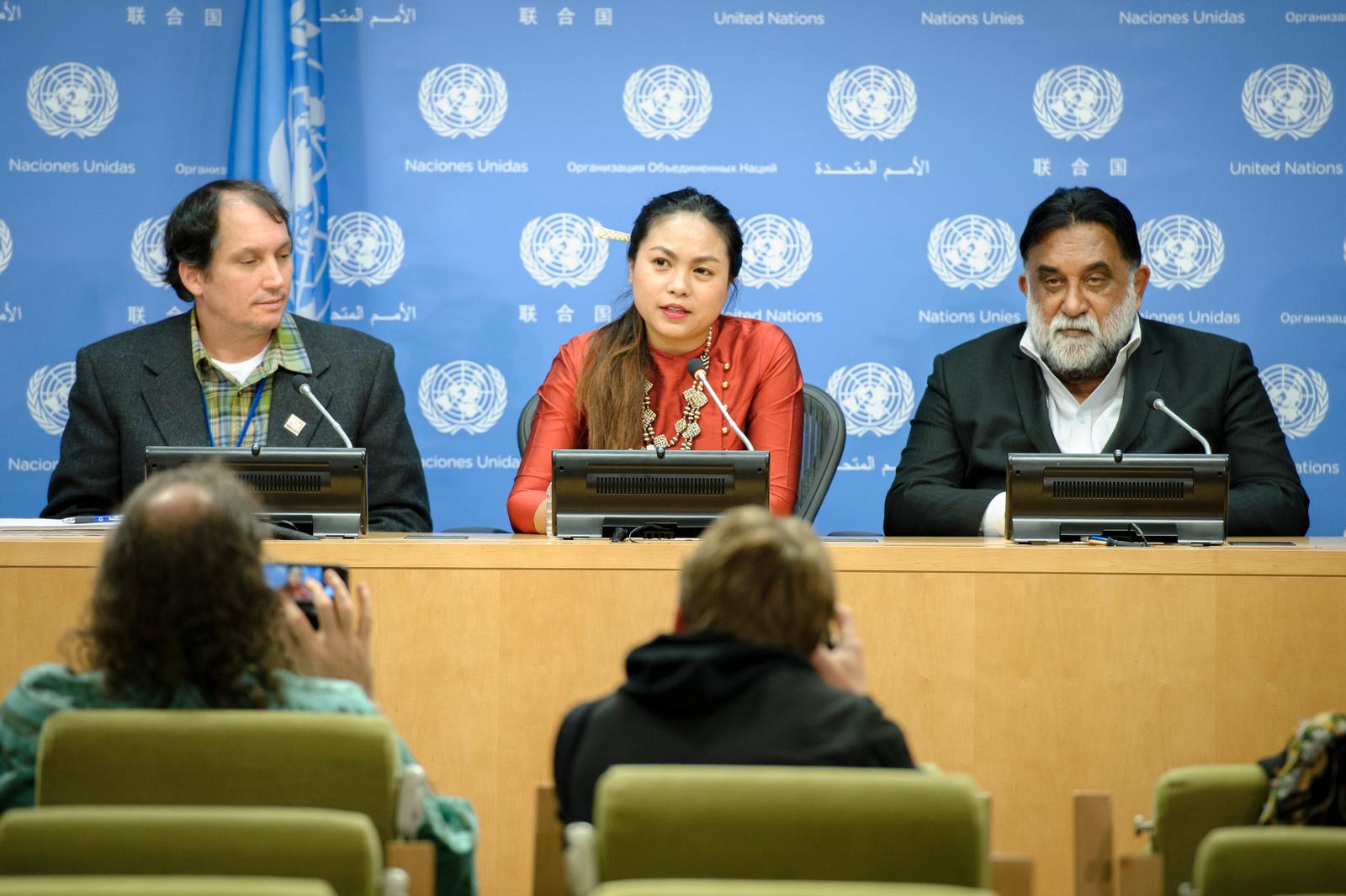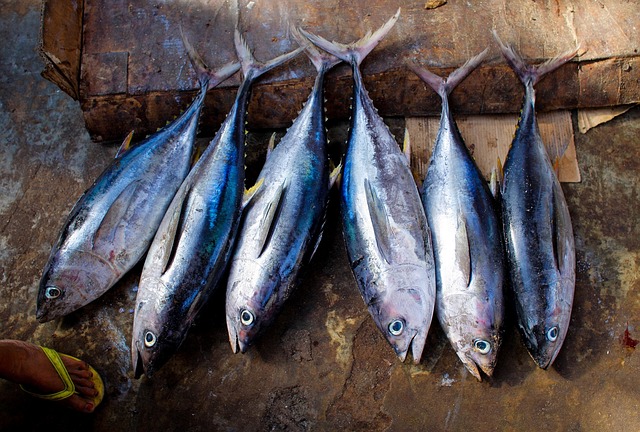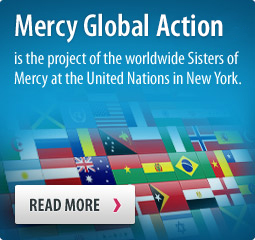
Reporting on the Permanent Forum on Indigenous Issues 16th Session (24 April - 5 May 2017)
Reports: May 15, 2017
The United Nations Permanent Forum on Indigenous Issues (UNPFII) is held annually at the UN in New York for two weeks and has been part of the Economic and Social Council processes since 2000.

Mai Thin Yu Mon (centre), representing Asia Indigenous Peoples’ Pact and Chin Human Rights Organization (Myanmar), briefs journalists on outcomes of the 16th session of the UN Permanent Forum on Indigenous Issues. 04 May 2017. United Nations, New York. Photo # 721644. Used with permission
Indigenous representatives from around the globe join with member states and other representatives of civil society to share ideas, discuss policy and present issues of concern. Its purpose is to report on and advise the Council on economic and social, culture, the environment, education, health and human rights relating to Indigenous people and communities. The Sixteenth Session took place from 24 April - 5 May 2017. The Special theme for this year's forum was 'Tenth Anniversary of the United Nations Declaration on the Rights of Indigenous Peoples: measures taken to implement the Declaration'. MGA at the UN was represented by Colleen Cloonan, Bridget Crisp rsm and Angela Reed rsm.
The Sisters of Mercy recognize that many issues facing Indigenous Peoples relate to land and water rights as well as sovereignty and self-determination. Our participation at the Permanent Forum on Indigenous issues involved observing the formal dialogues of the 16th session, attending side events and listening intently to the needs and concerns of indigenous people and informally meeting indigenous representatives from across the globe.
A significant event that MGA attended was one in which Indigenous Peoples’ presented human rights cases from the Amazonian region and beyond. This side event was sponsored and organized by Pan Amazon Ecclesial network (REPAM) and the NGO Mining Working Group (MWG) of which Mercy Global Action is a member. Four Indigenous Peoples from the affected Amazon region spoke on issues related to mining company actions. They expressed their concern that these mining companies operated with virtual impunity given that they have government support.
Contaminated water and excessive deforestation by mining companies were two key areas of concern expressed by the indigenous speakers. They spoke of how this impacted their daily lives and the health and livelihood of the community. The impact of land degradation on the Amazonian Indigenous Peoples, like the Yanomani community, extends beyond the physical into the mental and spiritual regions of the body. The Yanomani consider themselves ‘one with the forest’ – they are unable to survive anywhere else. This is reflective of all the indigenous cultures within the Amazon.
 Also during the forum was an event, to celebrate World Tuna Day (2nd May), sponsored and organized by Austria, Nauru (on behalf of the Parties to the Nauru Agreement) and the Marshall Islands. The focus was on the importance of the Tuna Fishing Industry which is a vital economic resource for many Small Island Developing States in the Pacific. Many of the Small Island Nation Indigenous Peoples’ depend on fishing for an income source, but large fishing companies’ operations in the world’s oceans have impacted significantly on stock rates of many fish species that these countries rely on. One point that had an impact on listeners was that if the dollar value of Tuna caught in the region was transferred directly to the Small Island Nations, then they would be amongst the wealthiest nations on the planet…instead the majority of small island nations rely on aid.
Also during the forum was an event, to celebrate World Tuna Day (2nd May), sponsored and organized by Austria, Nauru (on behalf of the Parties to the Nauru Agreement) and the Marshall Islands. The focus was on the importance of the Tuna Fishing Industry which is a vital economic resource for many Small Island Developing States in the Pacific. Many of the Small Island Nation Indigenous Peoples’ depend on fishing for an income source, but large fishing companies’ operations in the world’s oceans have impacted significantly on stock rates of many fish species that these countries rely on. One point that had an impact on listeners was that if the dollar value of Tuna caught in the region was transferred directly to the Small Island Nations, then they would be amongst the wealthiest nations on the planet…instead the majority of small island nations rely on aid.
Messages to:
Colleen Cloonan (Intern), Bridget Crisp rsm (Intern) and Angela Reed rsm (Coordinator, MGA at the UN)




